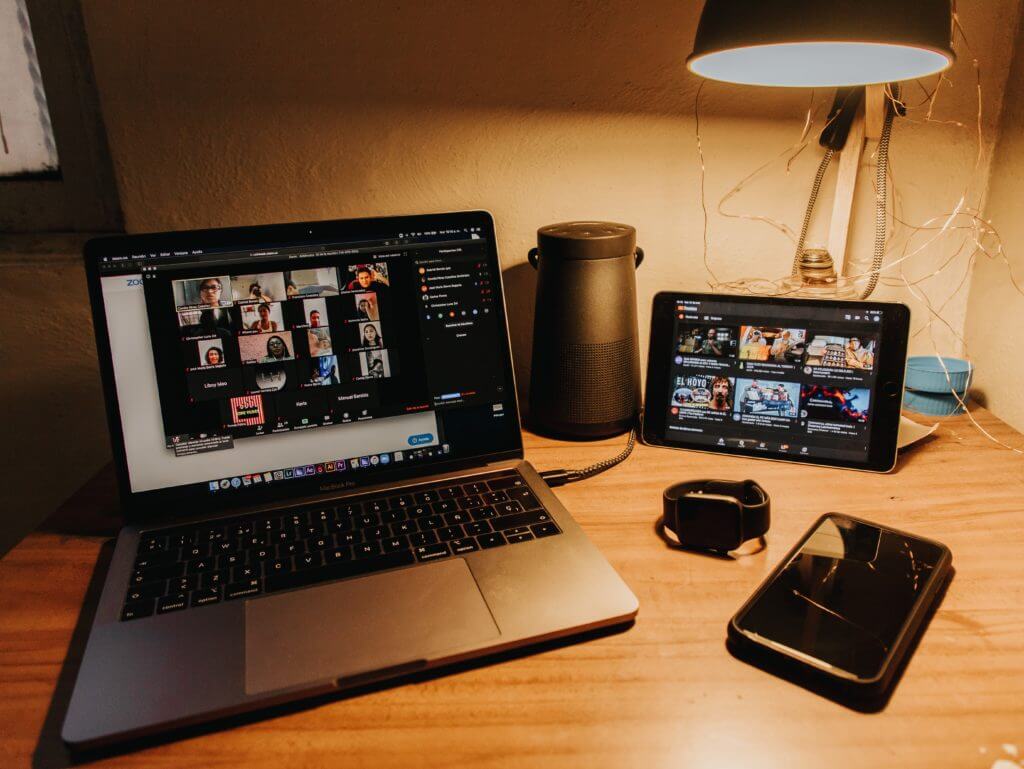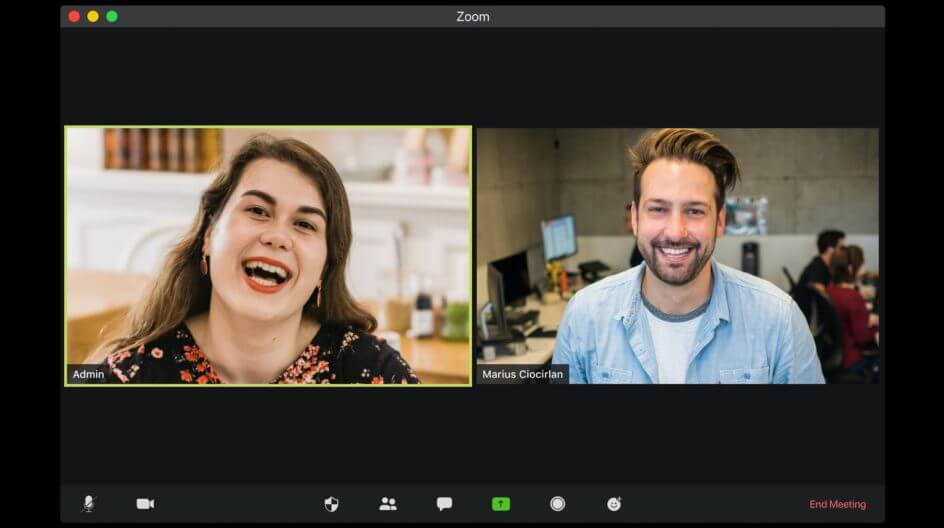That coveted opportunity is finally knocking on your door. Heck, any opportunity is finally knocking, in these insanely crazy times. You’ve breathed a sign of relief with the golden fortunes that the opportunity promises. Or something to that effect. But you can’t rest yet. You’ve just put one foot through the door. it’s time to get fully geared up for the big day. Or rather, that all important zoom interview session. While interview etiquette between traditional interviews and 2020 dystopian interviews might not be all that different, there remain some key distinctions that we will cover in this detailed guide.
In the interview process, demonstrating trust, affability, competence and professionalism are of critical importance. As AJ and the team at Art Of Charm have undoubtedly and relentlessly hammered home time and time again, first impressions are everything – especially in a situation as noteworthy as the interview process. Furthermore, as we will highlight below, building upon that first impression by creating friendly rapport and demonstrating competence will be key to securing that incredibly job opportunity.
Brian Tracy, a renowned personal and professional coach has noted that making a great first impression is critical to becoming an influential leader. “The ancient Greeks spent a lot of time thinking and writing about the effect of one personality or another. They broke down the process of communication into three parts, which they called ethos, pathos & logos.” At The Dark Knot, we like to think that these three modes of communication are indispensable to the interview process, whether in person or online:
- Ethos (Dressing well, signalling authenticity & trust) –
This is centered around the person that you are, and just as importantly, the person that you are perceived to be. Whichever functional role you are applying for, perception will play a critical role in assessing your character and conduct. The initial 30 seconds where your interviewer is consciously (or subconsciously) making a snap judgement will be largely determined by how you dress, your posture, and for online interviews, your ability to maintain eye contact through the camera.
- Logos (Demonstrating competence in the interview process) –
The appeal to logos is achieved through the use of facts, statistics, and demonstrating logical and reasoning ability. In the interview process, this will be achieved through walking through your answers to questions in a calm and methodical manner (being able to demonstrate this in an online interview setting is especially important, as body language cues etc. cannot be picked up as easily – so make an impression where you can!).
- Pathos (demonstrating affability) –
This involves appealing to your audience in a manner that evokes an emotional and visceral response. In an interview setting, this would entail demonstrating your passion in an authentic and engaging manner.
Dressing Well & Making A First Impression (Building Ethos, signaling authenticity & trust)
MEN’S FORMALWEAR ATTIRE
For formal attire, we would suggest wearing a classic, solid navy or charcoal grey suit. Avoiding fancier patterned suits will help keep the interviewers focus on you and what you have to say, as opposed to focusing on louder patterns! A navy blue suit is said to inspire confidence in the wearer, and will help you come across as friendly, open, trustworthy, all critically important characteristics of an employee with integrity.
Alternatively, a safe yet dapper option is the charcoal grey suit. Providing a neutral, unassuming look, a charcoal grey suit will have you looking the part for interview day.
In line with keeping your attire elegant yet simple, we suggest wearing a white or blue shirt which will provide the perfect canvas upon which to strut that fancy tie.
Necktie
When dressing for your interview, to detract from being dressed too loud you generally want to select conservative ties that are solid, striped or have a repeating geometric (foulard) pattern. Please note that even though you will be seated with only your body showing from the torso up, we highly suggest tying your tie so that the tip of your tie is reaching your belt buckle (having your t’s crossed and I’s dotted will have you feeling like you have everything sorted for the day!). Remember, its all about mindset, and feeling organized and immaculately dressed will go along way to building confidence.
While a four in hand knot generally suffices during an interview setting, learning how to tie a half or full Windsor knot will make you feeling better dressed, and hence more confident, on the big day.
Please feel free to view The Dark Knot’s range of interview ties
Socks
Avoid socks that show leg (again, while this can’t be seen in an online interview setting, the point is that you want to dress as impeccably as possible!). Additionally, opt for socks that match the color of your shoes.
Shoes
While your shoes will not be visible during a zoom interview, having on a dapper pair will round off your look and just make you feel more polished and confident. With a navy or charcoal grey suit, you can opt for cap toe brown or black oxfords. Keep in mind that round shoes provide a more professional look than square toed counterparts.
MEN’S BUSINESS CASUAL INTERVIEW ATTIRE
If you have applied for a role with a business casual dress code, and HR has essentially stated that the interview will be conducted in business casual attire, it is best to err on the side of caution. Chinos, khakis or cotton pants will work, along with a well pressed shirt.
Opting for a blazer can help transition your business casual attire to the more formal end of the spectrum. A blazer provides the perfect look for more formal business casual attire (a paradoxical sounding statement, I know!).
Wearing a tie can be considered option when dressing business casual. We would recommend strutting a plain white pocket square along with a solid or silk knit tie.
WOMEN’S FORMAL WEAR ATTIRE
For women, just as with men, dressing immaculately should stand out as a clear priority for the big day. Your choice of interview attire will be viewed as an indicator as to how seriously you are taking your job application process.
Suit
A darker navy, grey or black two piece suit will work perfectly, especially within a more conservative setting. Try and avoid spaghetti straps and tees under your jacket. Please note that women can pull of a black suit significantly better than men, giving the vast array of options for pairing with lighter blouse colors, creating an ideal level of contrast!
Pant Suit vs Skirt Suit
Whether you are opting for a pant suit vs a skirt suit (again, this can’t be discerned on interview day), what is important is that you look and feel professional on interview day.
Shirt
A white or lighter colored shirt will perfectly complement any of your suiting options, leaving you looking appropriately dressed for the big day. You can opt to enhance your look with a necklace or other piece of jewelry.
Shoes
While this is an online interview and your shoes can’t be seen, in line with the messaging for the rest of this article, it is imperative that you are appropriately dressed so that you are in the right frame of mind. Given that the goal should always be to look and feel your best, we feel that a mid heel, closed toe pump shoe should suffice.
WOMEN’S BUSINESS CASUAL ATTIRE
As is the case with men, women should opt for the conservative end of the clothing spectrum when dressing business casual. Khaki, twill or cotton pants will suffice, along with a shirt or blouse, and sweater or cardigan, permitting cooler weather. Solid colors should be chosen in favor of brighter, stronger patterns.
As a general rule of thumb, interview attire for an online zoom / video interview should be reduced to basic colors and textures that complement each other. Ultimately, the focus should be on you and what you believe you can bring to the job. Visually distracting clothing can serve to detract from that purpose.
PRIOR TO THE INTERVIEW (Essentially for being able to demonstrate ethos / trust on the day of the interview).

- GET FAMILIAR WITH THE TECHNOLOGY
If you have been hiding under a proverbial or physical rock over the last few months, and do not have zoom, please ensure that it has been downloaded ahead of time! Make sure that your employer has provided you with the meeting link and access code for your call.
Test your own hardware, whether the devices have been built into your laptop / desktop or are configured separately. Ensure that your webcam and microphone are working smoothly, so that you ‘t have any last minute hiccups that completely throw you off balance.
- PRACTICE LOOKING AT YOUR WEBCAM WHEN SPEAKING
At risk of sounding like captain obvious, it is critically important that this point is paid attention to. Practice looking at your webcam when speaking, and not at the screen. It is absolutely imperative that you come across as professional, and part of this is looking at your interviewer and not seemingly at their forehead when speaking. Looking at the screen is going to make you appear like you are looking away from the interviewer – not a great way to build a sense of trust or ethos during the interview. So get this part sorted!
- SETTING UP A DISTRACTION FREE ZONE
As important as getting familiar with the technology is setting up a distraction free zone in your apartment or house.
Try to eliminate and avoid visual distractions that will detract from you being the focus. While have a piece of art hanging behind you is completely kosher, several posters or shelves full of books can serve to be distracting.
Additionally, you’re best off keeping the windows in your room shut, so as to eliminate auditory distractions. And if you have kids, please make sure that they do not interrupt the interview.
- RECHECK THE DATE, TIME & TIME ZONE
The last thing you need on your hands is missing the interview due to a time zone gaffe. Don’t be that guy or gal! Re-read the email from your prospective employer and ensure that the right time has been blocked off on your calendar. While this is a simple step, it will help avoid embarrassment and a calamitous scenario.
- SET AN APPROPRIATE BACKGROUND
While a clean home office or room with a desk should suffice, try opting for one of Zoom’s virtual backgrounds if your room is too messy. Again, as with the rest of your interview preparation, this should be selected ahead of time so you are not fiddling around with zoom’s virtual background feature five minutes before your interview!
- PREPARE THE NIGHT BEFORE THE INTERVIEW
Indeed. Preparation, in case you missed the memo, starts the night before (if not longer). Preparing your attire the night before will work wonders.
Additionally, prepare a copy of your resume as your interviewer will be working through various bullet points so that you can describe your work experience. Having a printed copy of your resume that you can quickly glance at and reference if needed will ensure that you don’t fumble talking about your own work experience!
- PREPARE ANSWERS TO QUESTIONS YOU ARE EXPECTING
Finally, the real preparation starts, you say. Well, now that technical issues and clothing have been taken care of, it’s time to get to the meat and potatoes of your prep work.
Looking for where to start? Try anticipating questions your interviewer will ask. How about stuff that jumps off your resume. Such as why you might have switched jobs a few times in the last few years, or why you are trying to migrate to a new industry? How about whether you have any close friends or family in the region you are applying to, to give your prospective employer a sense as to your long term commitment to the area?
Preparing for questions that they are likely to ask will have you feeling more confident and relaxed walking into that interview setting.
- WRITE DOWN QUESTIONS TO ASK THEM (HELPS BUILD ETHOS & PATHOS / SENSE OF TRUST & AFFABILITY)
Preparing well thought out questions will signal to your prospective employer that you are taking the position and industry that you are applying to in a serious capacity. Try researching the industry, the company and the specific role that you are applying to. Having a question regarding all three will show that you have carefully thought about the role that you are applying to.
Asking the right questions will almost always leave a good impression.
- ARRIVE EARLY TO YOUR INTERVIEW
While arriving 10 minutes early for a traditional interview is considered good practice, a key distinction with online interviews is that arriving too early may result in your dialing in clashing in with an ongoing interview (assuming the same meeting link is being used). It is therefore best to show up to your zoom interview, marginally early – say 2-3 minutes before your interview has been scheduled for.
DURING THE INTERVIEW
- MAINTAIN CALM, POSTURE & A SENSE OF AFFABILITY (HELPS DEMONSTRATE PATHOS)
While demonstrating competence (logos / logical reasoning) will be largely limited to how you answer and ask questions regarding situations that require problem solving, exhibiting a sense of affability will be integral to all your interactions throughout the interview process.
Maintaining eye contact, exuding a relaxed yet confident disposition, exhibiting respect and asking appropriate questions will all go a long way towards demonstrating a sense of trustworthiness (ethos) and friendliness / affability (pathos).
- RESPONDING AND REACTING TO ACTUAL QUESTIONS DURING THE INTERVIEW (DEMONSTRATES LOGOS / COMPETENCE)
A critical component prospective employers will assess during the interview process are your competence and reasoning (logos) abilities, which will showcase your ability to problem solve in a contextualized situation. How you respond and react to these questions will demonstrate your ability to not only understand technical aspects of the job but whether you can respond to unforeseen situations in a calm and calculated manner. The following guidelines should help:
- Answer questions as they are asked. Refrain from interrupting the interviewer as they are speaking and conducting the interview.
- If you are unsure of the answer, clearly state that you do not know it. Nothing turns off a prospective employer more than a false sense of confidence.
- When working through a technical question, there is no harm in telling an employer that you need a minute or two to think about it. Keep your head down if need be, and calmly work through the solution in your head. Often, the employer will encourage you by assessing whether you are going down the right path with your line of reasoning, or whether you need to look at the problem from a different angle).
- INTERVIEW CONCLUSION & FINAL QUESTIONS (HELPS BUILD FURTHER ETHOS & PATHOS)
As the interview comes to a conclusion, you will typically be prompted by the interviewer regarding any questions that you may have (which ideally, should have been prepared ahead of time). When asking questions and trying to build a sense of ethos / pathos (trust / affability), it is absolutely critical to avoid coming off as arrogant. Instead, your questions should showcase a strong interest in the position, and a willingness and desire to learn and grown within the organization.
And that’s a wrap. We hope that you have found this article both informative and enjoyable.


